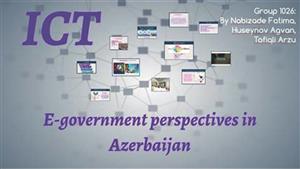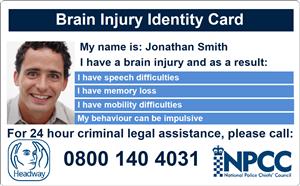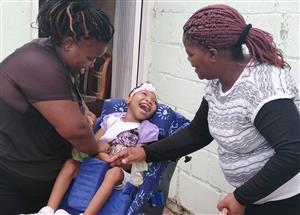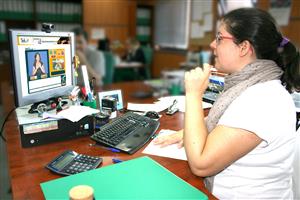Search Results
Search
Filter results
Advanced Filters
Your search returned 314 Solutions
-

E-government automatically transferring disability benefits without any bureaucracy
Ministry of Labour and Social Protection, Azerbaijan: Implemented a reverse system for disability benefits and pensions, automating verification and payment processes. Benefited over 46,800 persons with disabilities from 2020 to 2023.
e-government, Azerbaijan -

An identity card to promote fair treatment for brain injury survivors
The Justice Project was developed to raise awareness of brain injury within the police and court systems and to ensure fair treatment for persons encountering these systems. A credit card-sized card is issued to persons who have been diagnosed as having sustained a brain injury. As of November 2018, over 4,500 cards had been issued.
Headway - The Brain Injury Association, United Kingdom -
Strengthening the independent living movement through training and free legal advice
The PROPEDIF programme is made up of three services: Promotion of Rights, Orientation and Judicial Assistance, and the Honduran Independent Living Movement (MOVIH). By the end of 2018, 192 people with disabilities will have received rights training, attended camps on independent living, and have received legal guidance.
PREPACE - Cerebral Palsy Rehabilitation Program, PROPEDIF, Honduras -
Collaboration among museums in the Balkans to develop accessibility
BMAG is a peer-learning group of individuals that work in museums of five countries in the Balkan region. The aim is to develop knowledge about accessibility and implement appropriate accessibility measures in the museums. BMAG is supported by two disability advisors and a three-year training programme.
Balkan Museum Network, Bosnia and Herzegovina -

Digital-based support group for parents of children with disabilities
The Parent Network is a community-based support group for parents of children with disabilities, accessible through a dedicated app but also in person through designated volunteers. Launched in 2020 by Shonaquip Social Enterprise from South Africa, it already had some 1,000 participants in 2022.
Shonaquip Social Enterprise, Parent Network, South Africa -
Building disability-smart business
BDI promotes economic and social inclusion by making it easier for corporations to employ and do business with disabled people. Members jointly fund a "not for profit", expert resource which builds their capacity to deliver the business improvement. In 2012 BDI had some 350 members employing nearly 20% of the UK workforce.
BDF - Business Disability Forum, Building disability-smart business, United Kingdom -
Voting and participating in the electoral process
With its two regulations, Spain has introduced a voting procedure for blind electors as well as basic conditions of accessibility and non-discrimination for persons with disabilities to participate in elections and political life. This latter legislation is a broader policy framework aimed at improving the implementation of participatory rights.
Spanish Ministry of Home Affairs, Department on Electoral Cooperation, ROYAL DECREE 1612/2007 ON AN ACCESSIBLE VOTING PROCEDURE FOR PEOPLE WITH VISUAL DISABILITIES & ROYAL DECREE 422/2011 ON THE CONDITIONS FOR THE PARTICIPATION OF PERSONS WITH DISABILITIES IN POLITICAL AND ELECTORAL PROCESSES, Spain -
In Italy, students with disabilities are not segregated
The Italian Framework Law for the Assistance, Social Inclusion, and the Rights of Persons with Disabilities is a binding policy prescribing that children with disabilities have to be included in mainstream schools at all levels. As a result fewer than 1% of all children with special needs are educated in segregated settings.
Italian Ministry of Education, Universities and Research, Framework Law for the Assistance, Social Inclusion and the Rights of Persons with Disabilities no. 104 of 5th February 1992 by the Ministry of Education, Universities and Research, Italy, Italy -
Support programme for entrepreneurs with disabilities
RED – Emprendedores con Discapacidad (Entrepreneurs with Disabilities), a programme of Fundación Vida Independiente in Chile, supports entrepreneurs with disabilities through training, individual counselling, an online store, and accessible tools.
Independent Living Foundation Chile, RED – Emprendedores con Discapacidad (Entrepreneurs with disabilities), Chile -

A 24-hour sign language interpretation service via video call
SVIsual is a free 24-hour video interpreting service that allows deaf people to communicate with hearing people, launched by Fundación CNSE and the National Association of the Deaf. Users communicate through the service via sign language, and lip reading and text chat are also available.
CNSE Foundation, SVIsual, Spain